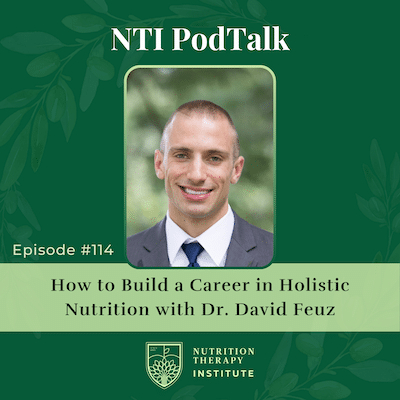
Share this post!
The kids go back to school. The leaves begin to fall. The stores transform into magical wonderlands for the holiday season. There are hundreds of reasons to feel joy and glee this time of year. Except…the days keep getting shorter.
The difference between the hours of sunlight per day in summer and winter is not trivial. Here in Denver, Colorado, we enjoy 15 hours of sunlight per day at the peak of summer…but only 9 in the depths of winter. That’s 6 HOURS of daylight lost.
Some people carry on through winter without a care in the world. They delight in the snow, the clouds, and the cozy nights. Other people are just the opposite. To them, winter is miserable. Their energy wanes, their sleep suffers, and they just feel glum.
If you are the type of person who struggles to endure the shorter days of winter, read on.
5 Tips to Avoid Feeling Blue In Winter
1. Stick to a Schedule
One explanation for why people struggle during the winter months is that their daily rhythm is thrown off. Our body clock (also called the circadian rhythm) is regulated internally but also responds to external triggers—like sunlight.
Science shows that many people who experience a low mood in the winter have a delay in their circadian rhythm. The hormones that should help them feel awake and alert in the morning, as well as those that should help them feel relaxed and sleepy at night, are produced on a delayed schedule. They feel tired and groggy during the day but unnecessarily wired and restless at night.
The important thing to know is that the hormones that regulate the sleep-wake cycle respond not only to sunlight but also to our daily habits. If you go to bed later and sleep in on the weekends, your body feels as bad as if you have jet lag. This phenomenon is called “social jetlag.” Social jetlag can disrupt anybody at any time, but it can worsen the circadian disruption that happens to some people during the winter months.
One simple way to support better sleep, energy, and mood through the winter is to keep a regular schedule. Wake up at the same time every day— either before or with the sun. This will maximize your hours of sun and expose your body to sunlight at predictable times.
2. Exercise
For lots of people, feeling miserable in the winter has to do with more than just mood. Some people also have trouble sleeping, make poor food choices, or gain weight. Exercise can help with all of these things.
Exercise is one of the best ways to combat weight gain that can creep up during the dreary months of winter. Exercise also supports better sleep. Exercise releases endorphins (feel-good chemicals) and regulates stress hormones. It modulates inflammation and helps balance levels of neurotransmitters. That means that you’ll feel happier and less anxious. It’s best to exercise outdoors, but any kind of movement helps.
READ MORE >> Brain-Derived Neurotrophic Factor Is a Great Reason to Exercise
3. Use Light Therapy
When it’s hard to find sunlight outdoors, simulating natural light indoors is the next best thing. Full-spectrum or balanced-spectrum lights release a specific temperature and level of illuminance to mimic natural light. Full-spectrum lights can be beneficial for anyone—whether you spend long hours at a computer, read for extended periods, or struggle with low mood in the winter.
Full-spectrum lights are not the same as light boxes, which doctors often recommend for people who struggle with sadness in the winter. The most common recommendation is to use a light box for 20-30 minutes each morning as a way to provide natural light stimulation to the eyes. Although light boxes are available without a prescription, it’s best to talk with a healthcare professional about the safest and most effective way to use a lightbox.
The final consideration when it comes to using light as therapy is a dawn simulator. A dawn simulator gradually increases the intensity of a bedside lamp over the course of 30-60 minutes in the morning. The simulator mimics the natural increase in light that occurs at dawn. Unlike a light box, which requires you to sit still in front of it for a half-hour, you can wake up to a dawn simulator and go about your day.
4. Take Vitamin D
One major health benefit of sunlight is that it helps your body synthesize vitamin D. Vitamin D deficiency is extremely common and can worsen during the winter months. A 2017 analysis of multiple studies reported that seasonal mood changes are often associated with low levels of vitamin D.
Although the recommended daily intake for vitamin D is 400-800 IU, it’s not uncommon for people to take between 1000 and 4000 IU per day to maintain adequate levels. The best practice is to have your healthcare practitioner measure your vitamin D levels and then supplement accordingly.
READ MORE >> Making the Most of Vitamin D During the Summer Months and Vitamin D: The Sunshine Prohormone
5. Tend to Your Nutrition
Vitamin D is just one of the many nutrients that can affect energy, sleep, and mood in the winter. One of the major hormones involved in regulating the circadian rhythm, for example, is melatonin. Studies show that eating melatonin-containing foods—such as mushrooms and some grains, legumes, and seeds—could boost melatonin concentrations in humans.
Another consideration is the production of neurotransmitters that regulate mood. Serotonin, for example, is a feel-good neurotransmitter that depends on tryptophan, magnesium, and vitamin B6 for its production. Diets containing adequate protein might help to support serotonin production and better mood.
Eating healthy foods is a sure-fire way to support a better mood. We need fruits and vegetables to provide antioxidants, high-quality protein to provide amino acids, and mineral-rich foods to support enzyme function. Every person is unique, but a qualified nutrition therapist can help you understand which foods are best for you. Check out our directory of graduates and practicing nutrition therapists to get personalized nutritional advice to survive the short days of winter.
Can Blueberries Make You Happy?
10 New Year’s Resolutions for Your Health
For more information, be sure to check out all of our great posts in the Stress & Mental Health category.
About the Author: Sarah Cook, ND, is an instructor at the Nutrition Therapy Institute. She is also the owner of ND Pen, providing branding, copywriting, and website design services for integrative healthcare practitioners. Connect with Sarah at ndpen.com.
Image by Pixabay is licensed under CC0 1.0
Share this post!


















